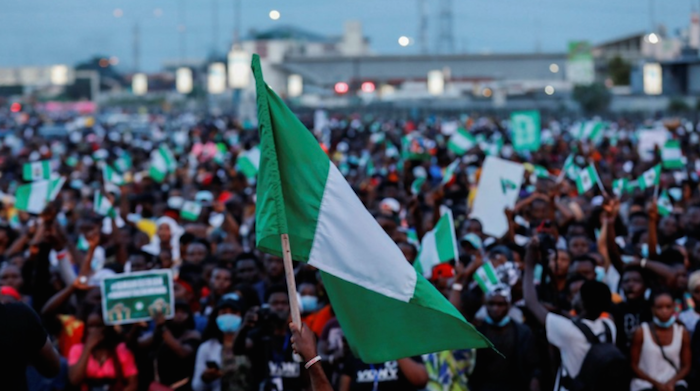I had dinner over the weekend with Naija friends, and as invariably happens when in the company of Nigerians, the conversation turned to Nigeria: the recent flooding (may the dead rest in peace and may those displaced find help); politics (may we get it right next year); and how we’d all like to relocate to Nigeria someday (good weather, good food, good everything but…)
Once the topic moved on to that of maybe moving back someday (or the ‘liking’ to), it became the perfect segue way into a night of sharing all the ways in which Nigeria has happened to us or those close to us or those we’ve read about.
Almajiri reform bill will give hope to millions of children, parents – Lawmaker
Arewa in search of “true leaders”
It hasn’t been quite two weeks since the disturbing clips of a dying, young, relatively well-known Naija guy, a man on his way to music stardom according to some, were shared on social media. He’d had an accident but since there were no obvious signs of trauma, there seemed no urgency on the part of those behind the camera or those who’d come to help to get him to a hospital. Or once he was there, to get him any sort of meaningful medical intervention.
There was no attention paid to how he was carried or how he was sat in a wheel chair once at the hospital. I am not a medical anything but I’ve watched enough medical dramas to know that an accident victim without visible injuries doesn’t mean that they are not hurt, especially if the person is unconscious. There was no ambulance (I read that the victim in this case was taken to the hospital in the backseat of a cab by either a good Samaritan or a friend), there was no gurney at the hospital; no team of trained personnel rushing into theatre or wherever, treating it like the emergency it was. Mba. Just a gaggle of people, at least one of whom was more interested in videoing than anything else, one laughing at something outside the frame of the camera, and two nurses, only one of whom appeared to understand her job and who kept asking for someone to help her move the victim inside. And for the duration of the clip (a few minutes) was roundly ignored. All the while, this young man was sprawled out in a wheel chair, dying before their eyes.
And that image – which I don’t think I’ll ever forget – is a perfect metaphor for Nigeria and how it deals with all of us. It doesn’t matter how much money one has, doesn’t matter how well connected one is, when the system doesn’t work, it doesn’t work for all of us. The hospital this man was taken to is apparently one of Lagos’s best hospitals. It has all the personnel – doctors and nurses as well trained as those in west – and equipment needed to save his life.
He died because despite it all, intervention came late.
Imagine if from the point when the accident happened, a witness had been able to call paramedics. Imagine if those paramedics had arrived in a matter of minutes, seen what was needed and given him some help right there, put him in an ambulance and whizzed him through Lagos traffic to the same hospital where health workers were on hand to take over. The result would have been different.
This is not some sci-fi futuristic imaginings of an over-excited mind. This is something that ought to be possible in Naija, the Giant of Africa, oil exporter, a country with all the millionaires that our musicians keep reminding us that we have etc etc etc.
Our leaders seem to have forgotten that when Naija happens to you, it doesn’t matter how much power, how much wealth or how well-connected one is. When you or your loved ones cannot get help at the moment when they are at the mercy of ordinary Nigerians who don’t know them, when you or your loved ones are in a medical emergency and there is no way to get you or them the needed help, when the America and Germany and London you and your loved ones run to for all your health needs is too far away because time is of the essence, of what use is all that money and power and connection? This is a rhetorical question but it bears answering because it appears to me that so many of those in a position to change things in Naija are blind to the right answer. The correct answer is zero. Nothing. Zilch.
Yet, this is something that keeps some diasporic Nigerians away. You can find a way through power failure (generator is there); through poorly staffed public schools and ASUU strikes (private schools are there). You can even find a way through insecurity ( MOPOL is there to guard you and yours). But how do you deal with the inability to get medical help when you do not have the luxury of time, for example?
These stories we – those abroad – share about relatives and friends and friends of friends and folks we’ve heard of to whom Naija has happened in some way can sometimes feel like cautionary tales to justify staying away but really they are tales to remind us of how much work still needs to be done. And we need those so that we can, in however we can, join our compatriots in holding the feet of those responsible to the fire. We mustn’t let up.

 Join Daily Trust WhatsApp Community For Quick Access To News and Happenings Around You.
Join Daily Trust WhatsApp Community For Quick Access To News and Happenings Around You.


